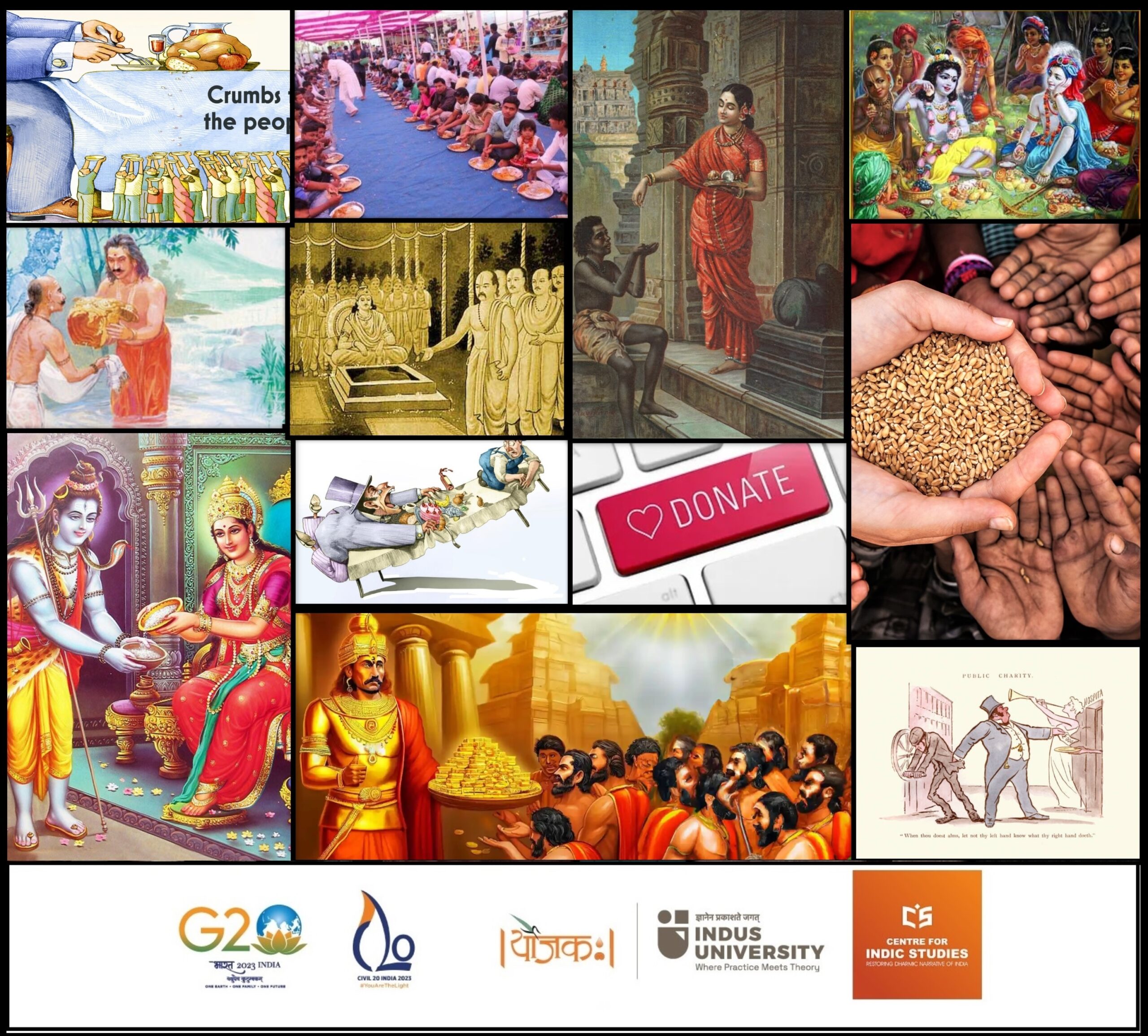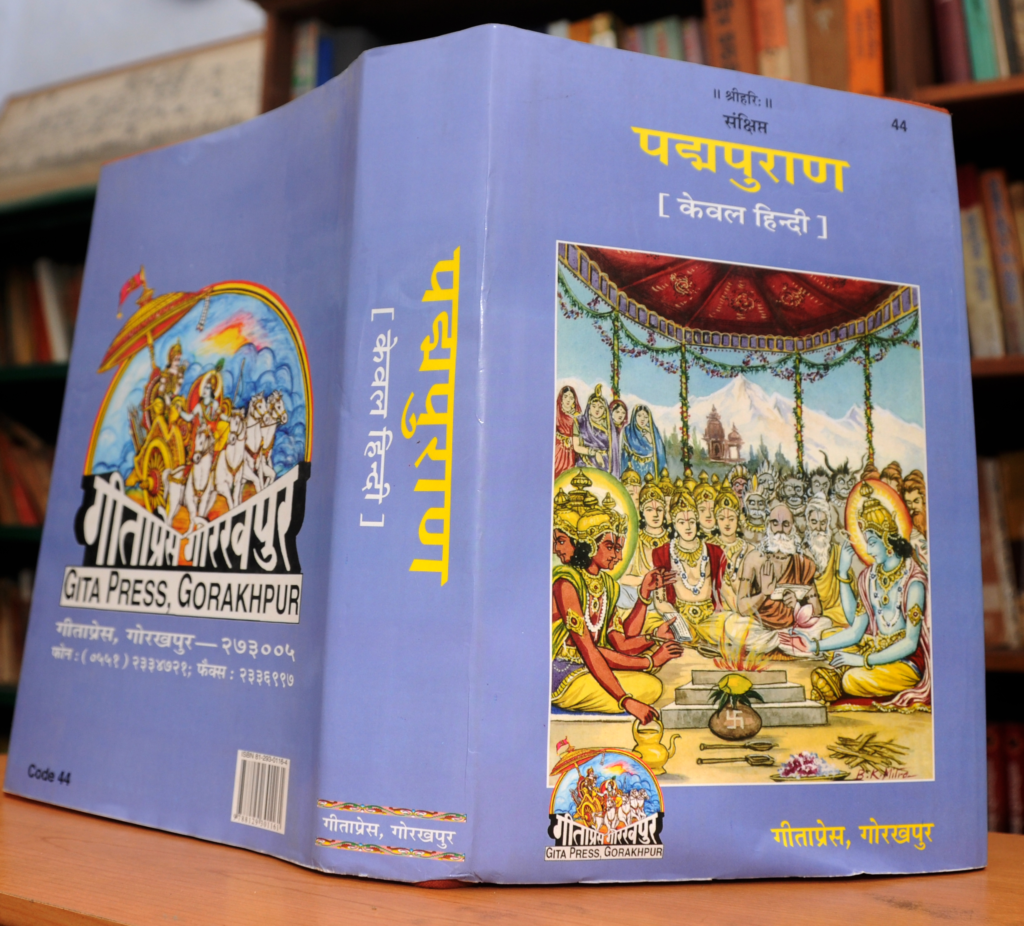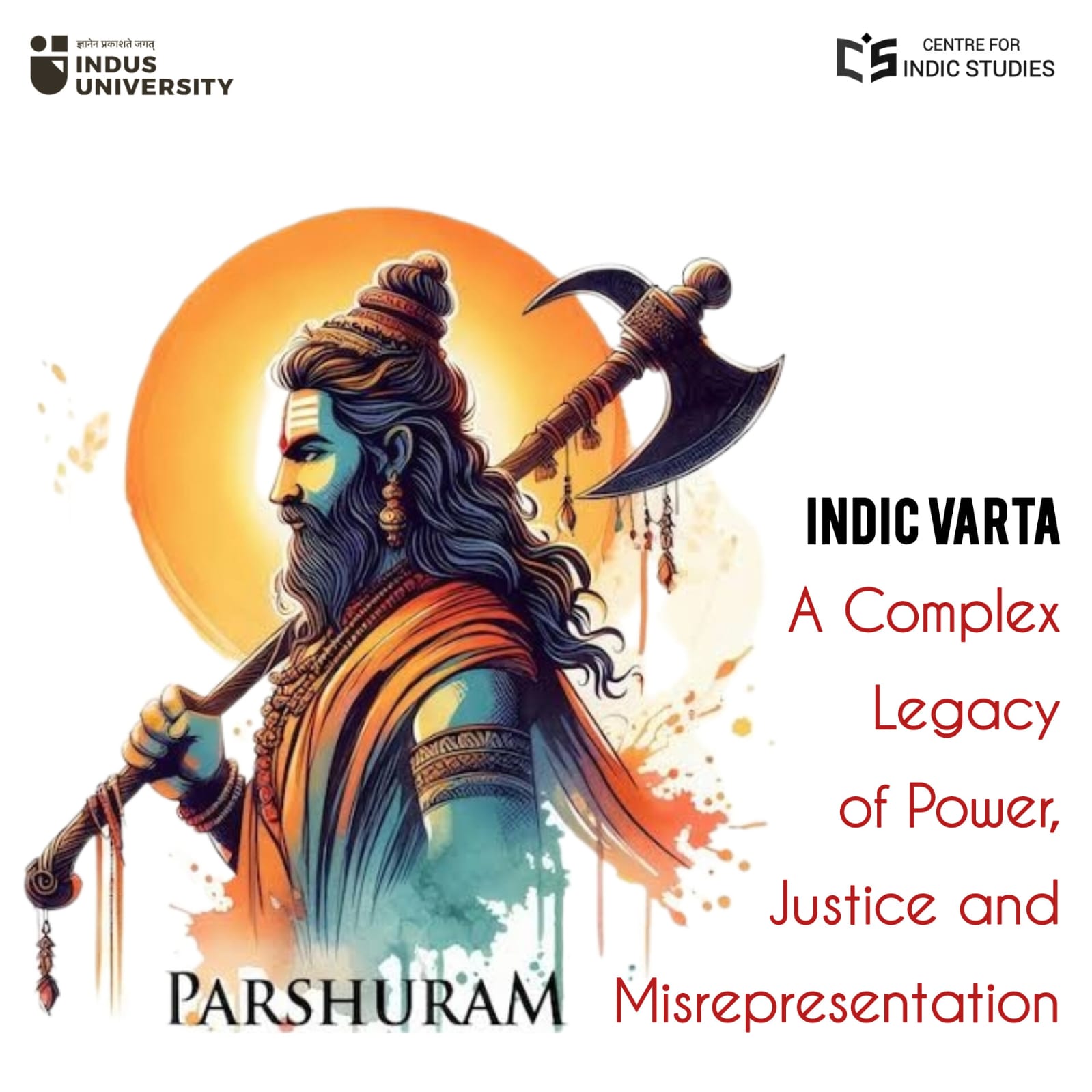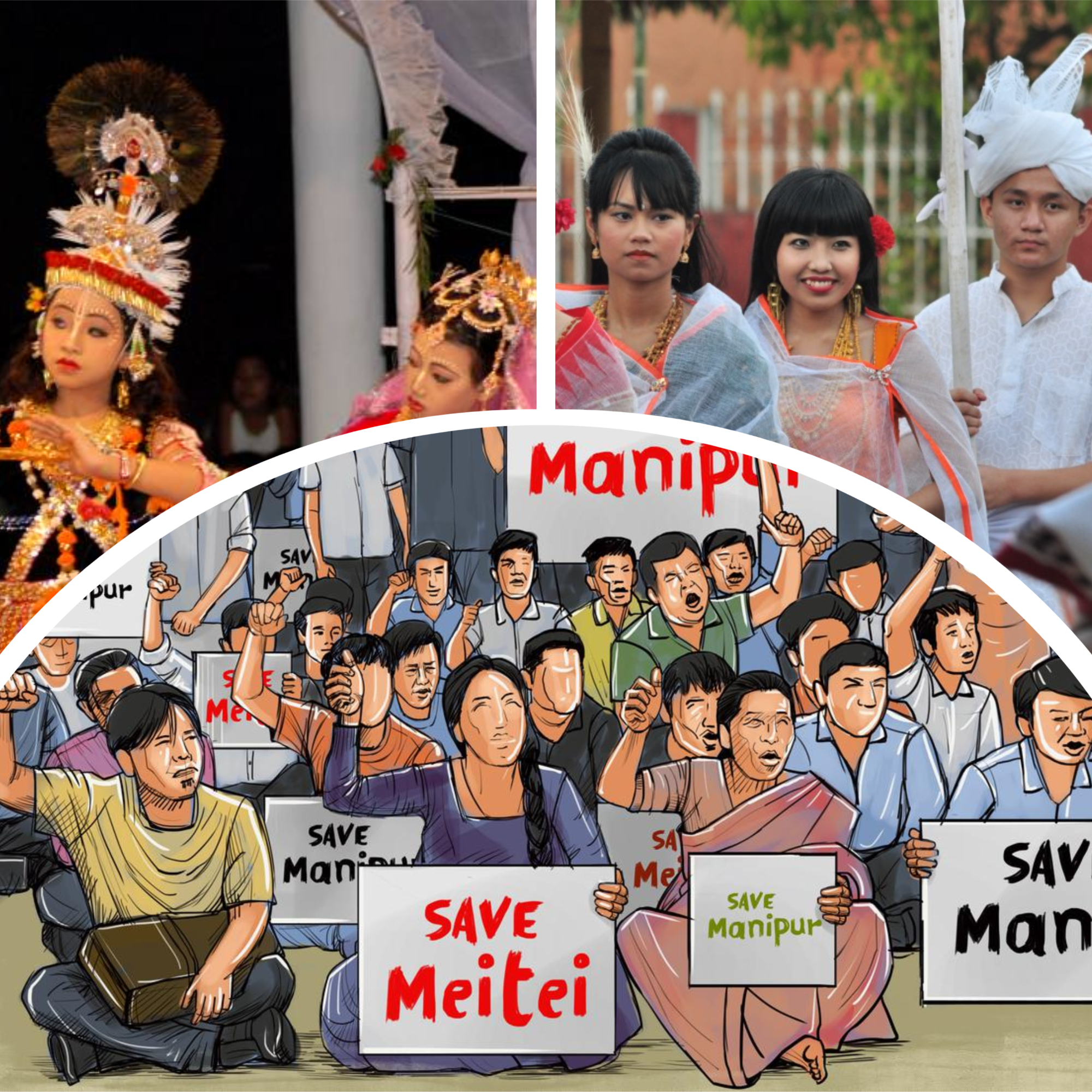- Visitor:12
- Published on:
Importance and fruits of charity in developing sustainable community and worthy receipt of gifts (C20_Indic Wisdom Series_Sustainable Lifestyle)
Let us assume that you have decided to make a difference in the world with your own hands but not sure from where to begin. Undoubtedly, we all need to play our own part in whatever way we can. Now you may come across some people who may advice to make a charitable donation. Is that a feasible solution to achieve happiness, experience more pleasure, reduce poverty and protect public health? And, for this will you not undertake some research to choose the perfect recipient? However, as you are ready to make charity, are you aware of what are the positive consequences of the donation? Let us see what the Hindu scriptures have to say about making the world a better place. Long ago, the ancient Indians already found the answers to the above questions and they proved how charities can also help communities become sustainable. Here, the specific portions chosen from the grand Padma Purana will help to understand this subject matter better.

- Let us assume that you have decided to make a difference in the world with your own hands but not sure from where to begin. Undoubtedly, we all need to play our own part in whatever way we can. Now you may come across some people who may advice to make a charitable donation. Is that a feasible solution to achieve happiness, experience more pleasure, reduce poverty and protect public health? And, for this will you not undertake some research to choose the perfect recipient? However, as you are ready to make charity, are you aware of what are the positive consequences of the donation? Let us see what the Hindu scriptures have to say about making the world a better place. Long ago, the ancient Indians already found the answers to the above questions and they proved how charities can also help communities become sustainable. Here, the specific portions chosen from the grand Padma Purana will help to understand this subject matter better.
On Charity (A gift of land is best)
Mahadeva said:
1-9. Seeing the Satakratu completed and accomplished with excellent presents, Indra, in whose mind a thought had arisen, asked Brhaspati: “O you glorious one, O you of a great penance, tell me about that inexhaustible and very valuable gift by means of which a man gets happiness everywhere”. Thus addressed by Indra, that family priest (of the gods), the god of gods and the very wise Brhaspati said: “O Indra, he who gives the gift of gold, or of a cow, or of (a piece of) land, becomes free from all sins. All (this) viz. gold, silver, a garment, a gem, a jewel would be (said to be) given by him who gives (a piece of) land. By giving land that is tilled with a plough, that contains seeds and is shining with corn, a man is honoured in heaven as long as there is the light cast by the sun. That sin, whichever a man over- powered by his livelihood commits, is purified by the gift of land of the measure of a gocarma. Danda is of the measure of ten cubits. Thirty dandas make a vartana. Ten such (vartanas) make a gocarma. This is the definition of brahmagocarma. That land where a thousand cows that have calved young calves and that are with bulls, remain uncontrolled, is known as gocarma.
10-14. As a drop of oil fallen into water spreads, in the same way, O Indra, the gift of (a piece of) land spreads in every grain. As the seeds scattered on the earth grow, similarly the desires accompanied by the gift of land, grow (i.e. become fruitful). The givers of food are always happy. One who gives a garment would be handsome. That man who gives (a piece of) land repeatedly gives all.
15-17. O Indra, as a milch-cow feeds her calf by sending out milk, in the same way the land that is given feeds the giver of it. A conch, an auspicious seat, an umbrella, excellent horses and fine elephants (obscure). The fruit of the religious merit of the gift of land is heaven, O Indra. The Sun, Varuna, Fire, Brahmå, the Moon, Hutáśana (i.e. fire), the lord with the trident in his hand greet the giver of land. His manes clap (with delight) and the grandsires describe (his gift), ‘In our family the giver of land is born. He will emancipate us.”
18-20. The three are said to be superior gifts: cows, land and knowledge. These lift (a man) from hell by means of mut- tering, sowing seed and milking. O brahmana, if they are taken up by the learned they help to cross a calamity. Those that give garments, go (to heaven with their bodies) covered. Those who do not give garments go naked. The givers of food go with gratification. Those who do not give food go hungry.
21-25a. All the manes frightened due to the fear of (falling into) hell say: ‘That (our) son who will go to Gaya will be our emancipator.’ Many sons should be desired, so that at least one of them would go to Gayà. He would perform the horse-sacrifice, or would give a ‘nila’ bull. That bull which is red in colour, whitish at the tip of its tail, white at the hoofs and tail, is called ‘nila’. By means of the water which the ‘nila’ bull, of a whitish tail, splashes, the manes are gratified for sixty thousand years; and by means of the mud which is on the horns, the family is emancipated; and his manes obtain (i.e. go to) the very bright world of Soma (i.e. the Moon).
25b-30a. It was (reached) by king Dilipa, Nrga and Nahuşa; but none of the other kings reached it. Many kings like Sagara, gave (the gift of) land. Whenever he gave (the gift of) land he got its fruit (just) then. That (gift of land) destroys the sin (of one) who kills a brahmana, who murders a woman, who kills a child, who is fallen, or the killer of thousands of cows. He who takes away the land given by him or by someone else, becomes an insect in the faeces, and is roasted along with his manes. The giver of land remains in heaven for sixty thousand years; and the one who strikes him (soliciting land) and who consents to (the suppliant being struck) would go to (and live in) hell for that much period.
306-37. None else is more meritorious or a greater sinner than the giver of land or the snatcher of it (respectively). They remain above (i.e. in heaven) and below (in hell) till the deluge. The first child of Fire is gold; the earth is (the child) of Visnu; the cows are the Sun’s daughters. He would obtain an unending fruit of (these gifts); so also he who would give gold, or a cow or (a piece of) land. He who receives (a piece of) land, he who gives it, both are meritorious, and certainly go to heaven. Those who snatch (a piece of) land or those who have caused (others) to snatch it unjustly would destroy their family (upto) the seventh member (i.e. descendant). He, a dull one and covered by (i.e. full of) ignorance, who snatches or causes someone else to snatch (a piece of land), is bound by the nooses of Varuna and is born in the stocks of lower animals. The gifts are censured along with the tears that are shed. The family up to three descendants perishes when the land of a brahmana is taken away. One who snatches (a piece of) land is not purified (even) by (digging) a thousand wells and tanks, or by performing a hundred horse- sacrifices, or by giving a crore of cows.
38-39. Whatever good deed is done, whatever gift is given, whatever penance is practised, whatever study is done, whatever is meritorious perishes by taking away (the portion of) the border (of a piece of land) of the measure of half a finger. He who oppresses (i.e. snatches) a (pasture)-a sacred land of cows, (a portion of) the road in the village, or (a portion of) cremation ground goes to hell (and remains there) till deluge.
40-44. A man kills five (members of his family) if he tells a lie with regard to his daughter, kills ten if he lies about a cow, kills a hundred if he tells a lie about a horse, and (kills) a thousand by telling a lie about a man. The liar with regard to gold kills those that are born and those that are not (i.e. are yet to be) born. He kills (i.e. destroys) everything by lying about land. (Therefore) do not tell a lie pertaining to land. Those who are burnt by fire, go up; so also those who are scorched up by the sun; so also those who are struck by the sceptre of the king or by the curse of awise man. The limbs nourished by a brahmana’s wealth, repeatedly waste away as the heat wastes away due to sand,
45-49a. A man who snatches the wealth goes to (the) Raurava (hell). Poison is not called poison; (but) a wise man’s wealth is called poison. Poison kills one(only), (but snatch- ing) a wealth kills one’s sons and grandsons. A man may digest iron-powder, or stone-powder, or (even) poison. But which man will digest a noble man’s wealth in the three worlds? That wealth which through (snatching of) a brahmana’s wealth gives happiness or which through (snatching away) the wealth belonging to (the temple of) a deity gives joy, leads to the destruction of the family and to that of oneself. The wealth of a poor man, the gold of the preceptor or friend would trouble a man even while (he is) living in heaven.
49b-53a. As milk, curd, ghee or honey put in an unbaked pot splits due to the weakness of the pot, but the pot does not perish, similarly, an ignorant man who receives a cow, gold, a garment, food, land and sesamum-seeds, becomes reduced to ash like wood.
53b-61a. He who would construct a new lake or would get an old one dug up, emancipates his entire family and is honoured in heaven. Wells, tanks, lakes or (trees etc.) growing in gardens, if improved again, give a pearl-like fruit. O Indra, he who has water (to give to others) in (even) the summer season, would never meet with a difficulty, a danger or an evil. O best god, water remaining on the earth (even) for a day, would emancipate seven members preceding (and succeeding) him. The man (offering a lamp) would be of a strong body by means of the light of the lamp. By giving presents he obtains memory and intelligence. He who, even after having done a sinful act, would give to a deserving person, especially a brahmana, is not smeared with sins. He who does not report when (a piece of) land, cows, or a servant are forcibly snatched is called the killer of a brahmana. He who, when a marriage is about to take place, or at the time of a sacrifice or gift, creates obstacle through delusion, be- comes an insect after death.
61b-71. Wealth becomes fruitful by giving (a portion of it); life becomes fruitful by saving (another) life. Harmlessness gets (as) its fruit handsomeness, prosperity and good health. A man gets (the fruit of) worship by eating fruits and roots. Heaven is obtained through truthfulness. Due to fasting oneself unto death one gets kingdom and obtains happiness everywhere. O Indra, an embodied one who roams about as a religious mendicant, who goes on well while in initiation, who bathes thrice a day, drinks (i.e. inhales) air (only) obtains the (fruit of a) sacrifice. He should bathe every day, be diligent and be endowed with the sandhya (prayer), Vedas and muttering. The harmless one goes to splendour, the indestructible heaven. One who enters fire is certainly honoured in Brahma’s world. By giving up tastes he obtains beasts and sons. He who fasts, lives in heaven for a long time. He who always sleeps on the (bare) ground, obtains desired position. He who takes up the posture of the brave, who sleeps like a brave man and occupies the position of a brave man has all inexhaustible worlds reached according to his desire. O Indra, having observed a fast, taken initiation and having bathed for twelve years he goes above the position of the brave. He practises purifying righteousness and is honoured in heaven.” Of the men who read (this) view of Brhaspati, four things grow: life, know- ledge, glory and power.
Narada said:
O king, all the sacred rules told by Brhaspati to Indra were told by great god (Mahela) to me, his devotee.

On gifts and worthy receipt of gifts
Vena said:
46b-48a. Tell me about the (proper) time of (i.e. for giving) a gift. What are the characteristics of the (proper) time (for giving a gift)? Being gracious to me, O lord of the world, if you have compassion for me, tell me in detail the nature of a sacred place, and also the good (i.e. proper) characteristics of a worthy recipient, and the procedure of (giving) a gift.
Srikrina said:
48b-57. O king, O great lord, I shall tell you the time for regular and occasional charity and also for the optional one, and for making daily and occasional gifts which would lead to the fourth (goal of life, i.e. salvation). At the time of sunrise, sin perishes everywhere. Very fierce darkness destroys men. This sun, my portion, is thought to be the treasure of lustre by day. Sins, burnt by the lustre of him only, are reduced to ashes O king, what can be said about that which increases the religious merit of him who even gives water to my rising portion (i.e. The rising sun)? When an auspicious time comes, if a person, after having bathed and worshipped his parents and gods gives, according to his capacity and with his mind purified by faith, gifts of food, water, fruits, flowers, garments, tâmbüla, ornaments, gold, and gems etc., he has unending merit. O king, he, who would also offer water dedicated to me at midday and afternoon, has unending merit. Like this he regularly gives food, drink, sweets, ointment, sandal, flowers, camphor etc. along with garments and ornaments, (which) gives enjoyments and happiness. This is said to be the usual time (i.e. time for regular charity), auspicious for those who desire to give gifts or offer worship.
58-71a. Now I shall tell you about the excellent occasional (charity). There is no doubt that one should give gifts at all the three times. He, who desires his own well-being should not pass a day void (of gifts). O king due to the power of the time at which something is given, a man (becomes) very intelligent, full of great power, rich, virtuous, learned, wise and far-seeing. I keep the excellent man away from food for a fortnight, a month, or a day-that is, as long as he has not given food. One who has not given an excellent gift has eaten his own excrement. Being displeased (with such persons) I generate in their bodies a disease, which keeps off all enjoyments, which gives them great trouble, which is accompanied by weak digestion, and which causes fever and suffering. He who has not made a gift (of food) to Brahmins and deities, three times, and has himself eaten sweets, has committed a great sin. O great king, he should thus purify his body by a severe expiation, and also by fasts withering up the body. As a cobbler cleanses the hide in the bowl with exudations from trees and expands it, in the same way I certainly purify a sinner, by proper use of herbs, and also by means of astringent and bitter medicines; (thus I do) in the form of a physician, with hot water and heating, and in no other way; there is no doubt about it. Other people enjoy his excellent, auspicious enjoyments as desired (?) What can (even) a powerful man do if he has not given an excellent gift? I torment him through the form of a great sin. O king of kings, if the sinners, through selfishness, have not given the regular gifts with a mind purified with faith, then with terrible means I consume them.
71b-75. O best of men, I shall explain to you the occasional time (i.e. times for making occasional gifts) and the merit (obtained by giving such gifts); listen attentively and with a good mind. O king, when it is the new moon day or the full moon day or the Sarikránti day, or Vyatipata or when it is Vaidhei Ekidaš, or when it is the full moon day in Magha or Aidha, or Vaisakha or Kartika, or when the new moon day falls on Monday, or on the anniversary days of the Manu-age etc., when it is the day on which the elephant’s shadow (falls towards the east), or it is a day called pitrkṣaya-all these are explained (by me) to you, O best king.
76-83. I shall tell you the fruit of the gifts that are given on these (occasions). O best king, listen. There is no doubt about this, O great king. I shall (now) explain to you the optional time (i.e. time for optional charity) for giving a gift which is fruitful. The best sages have told about the auspicious time for all vows in honour of gods etc., and also for giving gifts. O king, I shall also tell you about the time leading to prosperity. Of all the sacrificial rites the nuptial one is the best; O king, so also the time when the rite of the birth of a son, his tonsure-ceremony or thread-ceremony is performed; so also the time of the installation of the palace-flag or of deities: so also that (of the fixing ceremony) of the site of wells, pools, lakes, houses, is called (the time) leading to prosperity, when the mothers are worshipped. At this time (a man) should give gifts which bring about all (kinds of) success. O best king, I have just told you the time leading to prosperity.
84-104. (Now) I shall tell you something else which removes affliction due to sin. When the time of death has come, a man, knowing (that this) death is (imminent), should give a gift, causing comfort on (his) way to Yama, O best man. O great king, I have told you the times called regular and occasional ones, and also those that lead to prosperity. I have (also) told you the time of death. I have told (you about) these times which give fruits of one’s deeds. O king. (now) I shall tell you the characteristics of a sacred place. Among excellent holy places this Ganga shines. (Others that are) mentioned are the holy (rivers) Sarasvati, Reva, Yamunk, Tápl; and river Carmanvati, (and also the rivers) Saraya, Ghargharà, and Vená destroying all sins, Kaveri, Kapilà and the big (river) Vifvatarini, (and also) Godavari and Tungabhadrà, O king. (The river) Bhima- rathya is declared always to cause fear to the sinners. Other excellent rivers are Devika, Krsnagañgà etc. (For offering gifts) on auspicious occasions there are many holy places of (ie, on the banks of) these (rivers). Rivers, whether (they flow) through a village or a forest, are purifying everywhere. At these places acts like bath, charity etc. should be performed. O best ones, when the name of a holy place (on the banks) of those (rivers) is not known, the utterance of the (my) name should be done by saying: “This is Visnu’s holy place’, O king. O prince, a devotes should utter (the name of) me at the sacred places and (while presenting gifts) to gods. He gets the fruit of his merit due to (the utterance of) my name. O best king, at the time of bathing at unknown excellent holy places, and (offering presents) to un- known deities, one should just utter my name. O best king, the Creator has made these rivers the mothers of the all-meritorious sacred places, and they are (to be found) everywhere on the globe. O king, a man should not take bath etc. here and there (ie. anywhere). Due to the grace of the excellent holy places, one gets an inexhaustible fruit. The seven oceans only are of the nature of sacred places and are very meritorious. O king, the lakes like Mánasa etc. are declared to be like them only. Streams and ponds are also said to be of the nature of sacred places. There is no doubt about it. (There are) O great king, (certain) very small rivers. A sacred place is said to exist in them (i.e. on their banks), so also in all ditches excepting (temporary) wells. On the surface of the earth, mountains like Meru are also of the nature of holy places. A sacrificial place, a sacrifice well-put (i.e. performed) in a fire-chamber, and also the place where a sraddha is offered, is pure like that. Similarly a temple, a sacrificial chamber, a chamber where Vedas are studied (is pure). In the houses a cow-pen, possessing merit, is (said to be) the best. A sacred place exists there, where the performer of a Soma- sacrifice would be (present) and also a grove where the meritorious Asvattha stands (is a sacred place). A sacred place exists there where there would be a palása or an udumbara tree or a banyan tree; and also at a place where other sylvan marks (are present).
105-107a. These are said to be sacred places, and also father and mother; (the place) where a Purana is being recited, or the one where (one’s) preceptor resides (is also sacred). There is no doubt that that place where a good wife lives is a sacred place. The Place where a good son stays is a holy place-there is no doubt about it. These are said to be sacred places; and also a king’s abode (is a sacred place).
The Fruit of Occasional Charity
Vena said:
1-2. O god, I have heard from you the fruit of regular charity. By your grace (i.e. be gracious and) carefully tell me that fruit which is the fruit of occasional charity. I am not getting great satisfaction; my faith prompts me to hear it.
Visnu said:
O best king, I shall explain to you (gifts given called) the occasional. Listen to the fruit of the gifts given to worthy recipients by a person with faith, on a great parvan day. O best king, he, the best man, who gives an elephant, a chariot or a horse (to a brāhmaṇa) becomes the best king, accompanied by servants, in a holy country, O great king; there is no doubt about this. The religious-minded, powerful and very intelligent one becomes a very lustrous king and is unconquered by all beings. O great king, he, who gives a gift of land or a cow when the great parvan (day) arrives, would become the lord of all enjoyments. One should give a gift to a very meritorious brahmana with great care.
8b-lla. I shall tell you the characteristics of great gifts which a man gives at a sacred place on a parvan (day): he becomes a king. He who gives a secret gift (to a brahmana) at a holy place on a parvan (day), quickly has an imperishable attainment of treasures (i.e. obtains imperishable treasures). When a great parvan (day) comes, (a man should give) a great gift with a garment and gold to a brahmana at sacred places.
11b-29a. O king, I shall tell you (about) the auspicious fruit of that gift: (to him) many very virtuous sons, proficient in the Vedas, long-lived, having progeny, and endowed with glory and merit are born. Many (such sons) are born. O you very intelligent one, ample wealth (also comes to him). He gets happiness and religious merit. He becomes religious. When the great parvan (day) arrives, a (man), having gone to a holy place with great effort, should present a golden cow to a glorious brahmana. O you very intelligent one, I shall tell you about the religious merit of (i.e. obtained by giving) that gift. O great king, the giver of a tawny cow enjoys all pleasures. He lives there as long as Brahma would live. O king of kings, I (shall) tell you about the fruit and enjoyment of (i.e. due to) the gift of a cow given after adorning her, furnishing her with gold and with garments, ornaments and decorations. Ample glory full of gifts and enjoyments is produced. It is said that such a man (i.e. he who gives gifts) becoming a master of knowledge, would become a devotee of Visnu. He would reside in Vişnu’s world as long as the earth would remain. He, who, after going to a sacred place, would give an ornament to a brahmana, sports with Indra after having enjoyed many pleasures. He, who, endowed with faith, gives to the best brahmana, a deserving recipient, food along with land when a great parvan (day) arrives, having valour equal to that of Visņu rejoices in Vaikuntha. Giving (i.e. he who gives), according to his desire, gold along with garments to a brahmana for peace, he, resembling fire, would live happily in heaven. He should fill a big golden pitcher with ghee. He should adorn it with garments and garlands and cover it with (a) silver (lid). He should furnish it with a garland of flowers and make it adorned with a sacred thread. O highly intelligent one, worshipping it, consecrated with Vedic hymns, he should (then) worship it with sixteen pure articles of worship. Then well adorning it, he should present it to a glorious brāhmaṇa. He should then give sixteen cows with bell-metal udders, along with garments; (he should) also (give) four (cows) and a gift (to a brahmana) along with gold. He should also give twelve cows adorned with garments, ornaments and decorations to a separated (living in a lonely place?) brahmana. There is no doubt about this. O prince, such and other gifts (should be given). Having properly found a sacred place and (the proper) time, and a brahmana’s residence, he should give (gifts) with faith. That would lead to great religious merit. There is no doubt about it.
Bibliography:
Padma Puran, Gita Press, Gorakhpur
Padma Purana, Chapter 32
Padma Purana, Bhumikhanda, Chapter 39
Padma Purana, Bhumikhanda, Chapter 40
Center for Indic Studies is now on Telegram. For regular updates on Indic Varta, Indic Talks and Indic Courses at CIS, please subscribe to our telegram channel !
- 6 min read
- 0
- 0










